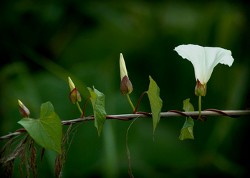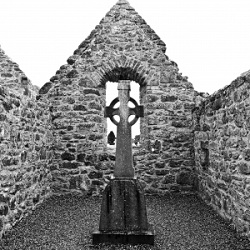Book Review - Shooting Salvationist
[amazon 1586421867 thumbnail]
America’s history is punctuated, and at times littered, with the stories of religious leaders of every denomination, stripe and reputation. From Cotton Mather and Charles Wesley to Billy Sunday and D.L. Moody to Oral Roberts and Jerry Falwell, a nation born out of a desire to worship God as we are inclined to do so has given rise to some interesting personalities.
Among the most flamboyant, notorious and controversial of these was “Dr.” J. Frank Norris, Pastor of the First Baptist Church of Fort Worth, Texas. He was, inarguably, one of America’s first “megachurch” pastors, but he was much more than that. He was also a showman, muck-raking journalist, astute businessman and, in the minds of some, a murderer.
Pastor David Stokes,* a man who grew up in fundamentalism and one who was well-acquainted with the reputation of J. Frank Norris, has written a mesmerizing book about the sensational murder trial of the pastor from Fort Worth as he stood to account for the shooting of D. E. Chipps with a pistol from his desk—right in the pastor’s office. The Shooting Salvationist is impeccably researched from the archives of Ft. Worth and Austin, Texas newspapers, Norris’ own Searchlight tabloid and numerous other documents located in the archives of the local libraries, the University of Texas at Arlington and the Arlington Baptist College.
The book is not intended to be a treatise on southern fundamentalism, the gifts of Norris or the history of religion in Texas or elsewhere. Instead, it is clearly a historical work with nary a suggestion that it was being written by a minister—let alone one who can trace his spiritual heritage back to the doorstep of the infamous “Texas Hotel,” located very near Norris’ office. It is a work of history and fact that has the feel and vibe of a John Grisham novel about some sort of trial in a hot and humid southern town.
Every generation or so, Hollywood takes the story of some real or imagined colorful religious icon and makes a movie about it. Works like “Elmer Gantry,” “The Apostle” and “Leap of Faith” are examples. If ever there was a book that was ready to be turned into this generation’s “Elmer Gantry” it is The Shooting Salvationist. In fact, the book reads much like a movie script with a precise coverage of detail that can, at times, be almost mind-dulling. Stokes expertly captured the feel and atmosphere of American life during that era from his examination of the Scopes Monkey Trial to the heydays of Ft. Worth’s rise to prominence to the powerful influence of the tabloid style of journalism then practiced by the likes of William Randolph Hurst and Norris himself.
Discussion
Book Review - Trust, Hope, Pray: Encouragement for the Task of Waiting
[amazon 0982577354 thumbnail]
In the interest of full disclosure, I have to admit to being a friend of Trisha Priebe; well, in so far as those relationships from college go. But we are Facebook friends, and I’ve been anticipating this book, Trust, Hope, Pray, since I first read her status update nearly two years ago about sleeping with a book contract under her pillow.
Co-authored with her husband Luke, Trust, Hope, Pray first took shape in their personal journals while they were waiting for an international adoption to be finalized. As they sought spiritual guidance for their long, often frustrating journey, they realized that not much Christian literature is devoted to the task of waiting on God. Trisha, who works in publishing, and Luke, who is finishing his M.Div. from Detroit Baptist Theological Seminary (and who together admittedly have a “book budget bigger than their grocery bill”), felt God leading them to contribute to the conversation through their own experience.
Trust, hope, pray, wait
The book is comprised of 365 page-length entries that explore what it is to trust, hope, pray, and wait. Each entry begins with a verse on one of those themes and includes the Priebe’s reflections and experiences, as well as quotes from notable Christian authors and hymn writers. In this sense, the book is designed as devotional literature and is not intended to be read in one continuous flow.
I began Trust, Hope, Pray nearly a year after my own family had been in a holding pattern of sorts and immediately recognized the wisdom of structuring the book in this way. When you are enduring a difficult season of waiting, your spirit very easily becomes worn out, overwhelmed, and exhausted. In such seasons, the last thing you are able to read is an extensive theological analysis of waiting. In these times, what you need most are daily, quiet, simple reminders of what you already know: God is in control, He loves you, and you must continue to trust Him.
Discussion
"Fundamentalism has a wonderful future because it is based on the truth of the Bible"
Body
Discussion
"We Shall All Be Changed"

As I sat in the midst of the church council, comprised of at least a dozen gray heads, I was painfully aware that I was only 21 years old. They had asked me to consider being their pastor. That could not have been an easy decision for them, but I was going to ask them to do something much harder: change. As a fledgling separatist I could not join their church’s conference, but it would be simple enough for them to withdraw from it, right?
But they could hardly understand why I would ask such a thing. They had always been conservative and thought that holding to their solid tradition was enough, while the world changed around them.
Today, half a lifetime later, I am a gray head and I am struggling with the concept of change. Is it too late in the course of church history to propose another doctrine? Not so that I can teach it, but so that I can study it, a thorough “Changeology” needs to be developed. I must not be the only one who is longing to know when it is right and best to cut loose of old moorings, and when it is both courageous and wise to hold to the time-tested. Choose your hot-button issue: Bible translations, music, worship formats, personal separation standards, and probably any other you can imagine, the issue is: “to change or not to change?”
In my opinion Leith Anderson makes some good observations but comes to the wrong conclusions in his book Dying for Change, which is perhaps the volume most to the point. He says, “Two theological truths explain God’s relationship to change: immutability and sovereignty.” (11) He rightly notes that change is most often chaotic for man but never is for God. I disagree with some of his suggestions for modernizing the church, because we have different “non-negotiables,” but I appreciate his consistency.
Discussion
Proud Fundamentalist

Lots of people claim to be fundamentalists. Far more are labeled “fundamentalist” by media outlets or Christian leaders who wish to distance themselves from more traditional—or just more feisty—brethren. Those who want to use “fundamentalist” in a historic sense can only avoid confusion by using the term with qualifiers and explanations—in other words, by including context.
So when I say, “I am a proud fundamentalist,” I mean “fundamentalist” in the historic sense. Two statements from one of SharperIron’s “About” pages sum up the concept:
In a religious sense, the term “fundamentalist” was first used in 1922 in reference to a group of Baptists who were seeking to establish doctrinal limits in the Northern Baptist Convention. Their goal was to uphold the Bible and rid the convention of the philosophy of Modernism, which denied the infallibility of Scripture, rejected miracles, and gutted the Christian faith of defining principles such as the substitutionary atonement of Jesus Christ. In short, the fundamentalists thought the Northern Baptist Convention ought to at least be genuinely Christian.
…
At SharperIron we’re still clinging to the term in its historic sense. Here, a fundamentalist is someone who believes in the foundational principles of the Christian faith and also believes in separation from apostasy. Opinions vary as to the degree of separation, the process and the methods. But we are committed to the principle.
Discussion
Church Planting Thirty Years Later

In 1982 my wife and I planted our first church in Philadelphia – Faith Independent Baptist Church. The long church name seemed awkward back then but I wanted to be sure people knew up front where I stood. Fresh from eight years of ministry training at fundamentalist schools, I was a committed independent, fundamental Baptist. As extra insurance to validate my IFB credentials, I often added “militant and separatist” as well. The church’s doctrinal statement enshrined a dispensational hermeneutic essential for correct interpretation, the pre-tribulational rapture as the next event on the prophetic calendar, and the King James Version as the official translation. As a church we were known more for what we were against than for who we were.
Fast forward to 2011 where in the same city I am now working with a team of elders to plant another church in a spiritual wasteland where we parachuted in with a few families but without a significant core group. After thirty years of church planting I claim no special expertise, offer no guarantees of success, and sense an even greater dependency upon the Lord to build His church. Similar struggles, resistance to the gospel remain.
This one-year-old church is elder led, non-denominational, non-dispensational, and uses the English Standard Version. Much has changed. Most remains the same. I would venture to add that what is essential has not changed. In areas where change has occurred, thirty years of ministry, of study, of relationships, and of experiences have conspired to bring me to the place I am today. For many years IFB was all I knew or cared to know. Now I find myself rarely at home in this fragmented movement of competing networks. I find myself increasingly on the outside looking in. This is my journey, but I’m glad I was not alone.
After planting a church in Philadelphia from 1982-1987 my family and I went to France and then Romania in church planting and pastoral training ministry. Those years spent overseas provided opportunities for fellowship with believers from different horizons and spared me the need to engage in many of the needless conflicts being fought in the States. There was less need to conform to others’ expectations of what it meant to be safely within the fundamentalist orbit.

Discussion